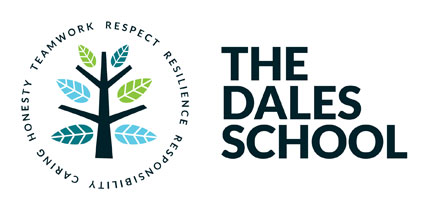Pupil Progress
Pupil progress and development is carefully monitored and assessed by teaching staff, support staff and therapists. Individual records of progress and achievement are maintained by class teams. All members of the teams add their views and advice about the children’s development through regular dialogue, meetings and written reports. A range of assessment tools are used by teachers and therapists to support the evaluation of pupil achievement at all levels of development.
iASEND is used as the assessment framework as it maps directly onto both the National Curriculum and our curriculum offer. The assessment statements can be used as learning objectives, which target learning opportunities at the next steps on an individualised basis. In addition to capturing ‘vertical progress’ (new learning and skills), iASEND captures ‘horizontal learning’ (depth of learning and understanding).
Pupils at The Dales School may reach a point in their learning journey where acquiring new knowledge or skills interferes with, or degrades, their prior learning and attainment. By teaching for understanding and the ability to generalise knowledge and skills, we deepen pupils’ knowledge and skills, and this leads to functional understanding. By approaching learning in this way, we ensure that our pupils can apply what they know across many contexts.
iASEND covers all levels of attainment from very early learning (previously p-levels) to Key Stage 3 of the National Curriculum. The attainment of all pupils in school can be effectively measured and tracked using this assessment tool. Analysis can take place looking at various cohorts and pupil populations; and effective benchmarking with other provisions is easily achievable.
iASEND covers all curriculum areas. Pupil progress is recorded, tracked and analysed in each of these strands. This information is used, not only to show progress on an individual level, but also collated to show progress across the school in different curricular areas. From this, any area needing a particular focus can be identified and intervention planned.
Continuous assessment is ongoing and forms an essential element of a teacher’s session planning.
EHCP Targets
A detailed Pupil Profile is written based on the child’s priorities for development as detailed in their Education Health Care Plan. Priorities for development form the basis of individual targets in addition to the class-based planning within which progress can be monitored. EHCP short-term targets are reviewed throughout the term in team meetings and are formally reviewed and updated each term. Where a child has made significant progress or needs a target to be broken down into smaller steps, the target is changed at this formal review.
Feedback on the achievement of targets is the responsibility of all who work with the child and this includes classroom staff and therapists. Senior Leaders with responsibility for assessment lead the process of evaluating progress, supporting staff and guiding them if children are not making at least expected progress.
EHCP Review
In accordance with legislation, pupil’s Education Health Care Plans are reviewed annually. An updated report incorporating notes of the annual review meeting is produced each year for every child. Parents are invited to submit a written report to form a part of the review process. Teachers, class-based staff and therapists discuss and complete annual reports and contribute views and comments regarding progress, strengths and areas for further development. Additional advice is sought, as appropriate, from other professionals where this supports the child. An annual review meeting (to which parents and other professionals are invited) is arranged following circulation of all reports and advice submitted by those involved with each child. All reports, targets achieved and notes from the annual review meeting combine to form each child’s annual review report.
This will usually include:
- Parents’ comments on their child’s development (the parents’ report)
- The child’s views recorded in the most appropriate format
- Annual review report that details progress against the child’s EHCP outcomes, and academic process as measured by iASEND
- A summary of the annual review meeting
- Recommendations or updates with regard to the child’s needs and provision to meet those needs.
The annual review report is circulated following the annual review meeting to parents, the local authority supporting the child at the school and other involved professionals.
Parental contact is made regularly, at least termly, to enable parents to discuss their child’s progress with teaching staff and the family support team.

